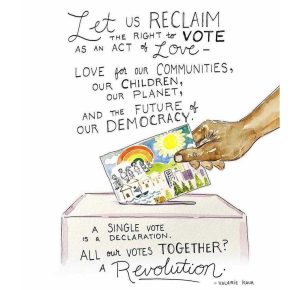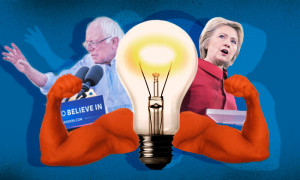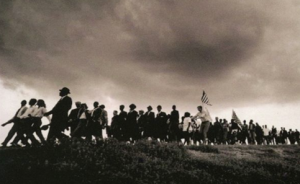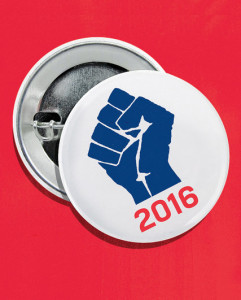Revolution
Dayle in Limoux – Day #78
September 21, 2022V
O
T
E
Always. Now. Especially. Register.
Thank you, Valerie Kaur.
“All our votes together? A R e v o l u t i o n.”
There’s my girl (!) back in Limoux doing her virtual work and exploring Languedoc with her maman. ღ
The bridge into Limoux with her guy.
Lunch in Alet-les-Bains!
Michael and Annie in Alet-les-Bains at L’Eviche for lunch under the trees and the abbey.
Waiting for the bus. Always. :)
A peek at the bridge and some random ancient stairs, most likely to connect to an old rampart. So want to know their story…
Found another old barn in Alet.
Great structure.
And another great find in Limoux. An old church from about 780 C.E. Beautiful.
Roman architecture.
I miss you William Henry.
B
E
L
I
E
V
E
Bonne nuit.
♡
#RBG
September 20, 2020Thank you, Radio Lab, for re-posting your RBG episode. I missed it when it first aired. It’s tenderly perfect after a couple of difficult days. Wonderfully written, produced, and reported; deeply and quietly layered with Ruth Bader Ginsberg’s brilliance, resilience, and goodness. I’ll remember this for a long time. She changed our world.
https://www.wnycstudios.org/podcasts/radiolab/articles/more-perfect-sex-appeal
‘We lost a legend. Supreme Court Justice Ruth Bader Ginsburg died on September 18th, 2020. She was 87. In honor of her passing we are re-airing the More Perfect episode dedicated to one of her cases, because it offers a unique portrait of how one person can make change in the world.
This is the story of how Ginsburg, as a young lawyer at the ACLU, convinced an all-male Supreme Court to take discrimination against women seriously – using a case on discrimination against men.
This episode was reported by Julia Longoria.
Special thanks to Stephen Wiesenfeld, Alison Keith, and Bob Darcy.’
[with Jad Abumrad]
#Revolution (It’s our turn.)
November 29, 2018Paulo Freire
November 18, 2016Only with everyone filling his or her own political space to the point of civil disobedience as necessary, will empowerment mean anything revolutionary.
Wait. It makes sense.
June 18, 2016‘I’m Sticking with Sanders – – and Voting for Clinton’
Bernie Sanders has the best policies. But Hillary Clinton has the chops to advance a progressive agenda—if we make her.
I see a possible scenario that can make a Clinton win a blessing. It is a long shot, but the logic is simple.
1. Few, if any, Americans have the broad insider experience that prepares Clinton to carry out the basic duties of the presidency—and to advance a progressive agenda if forced to do so by the persistent demands of a powerful progressive political movement.
2. Sanders has activated millennials and independents and energized a powerful progressive political movement with the potential to hold Clinton to a progressive agenda.
3. Trump is fracturing the Republican party and energizing his opposition. These two factors could flip control of Congress. Combined with a Democrat in the White House, that would assure a progressive shift in control of the Supreme Court.
4. These factors together create a moment of historic opportunity.
[…]
We also know, of course, the Clinton family’s history of aligning with Wall Street and the corporate establishment. To win against Trump, Clinton will surely continue to run against the corporate establishment. Once in office, however, she could easily slip into her old ways.
This is where the social movement that Sanders energized becomes so essential.
Small acts…can transform the world.
March 16, 2016Change in the microcosm…in community. This I believe.
—
Howard Zinn said:
‘Revolutionary change does not come as one cataclysmic moment (beware of such moments!) but as an endless succession of surprises, moving zigzag toward a more decent society.
We don’t have to engage in grand, heroic actions to participate in the process of change. Small acts, when multiplied by millions of people, can transform the world.
To be hopeful in bad times is not just foolishly romantic. It is based on the fact that human history is a history not only of cruelty, but also of compassion, sacrifice, courage, kindness. What we choose to emphasize in this complex history will determine our lives.
If we see only the worst, it destroys our capacity to do something. If we remember those times and places — and there are so many — where people have behaved magnificently, this gives us the energy to act, and at least the possibility of sending this spinning top of a world in a different direction.
And if we do act, in however small a way, we don’t have to wait for some grand utopian future. The future is an infinite succession of presents, and to live now as we think human beings should live, in defiance of all that is bad around us, is itself a marvelous victory.’
(A Power Governments Cannot Suppress)
Revolution…not evolution.
March 12, 2016New York Times:
(Editorial Board)
‘Revolutions are typically bottom-up, not top-down, events. Mr. Sanders’s campaign is powered by $30 contributions and an army of young volunteers, but there are not enough elected office holders in Congress or in statehouses to carry out his revolution through new laws or policies. And that’s the big difference between running an inspiring campaign and actually governing.
[…]
The mistake is thinking that we get behind a progressive candidate for president, and that will solve all our problems.
[…]
Mr. Sanders’s own political career illustrates what can happen when a revolutionary has no ground troops. For 25 years in Congress, Mr. Sanders has held fast to his progressive message and principles. But he hasn’t gotten many big things done. As an uncompromising political independent, his outsider status has largely prevented him from attracting the support that would be needed among Democrats to turn into law his liberal ideals on health care, on college education and on fighting poverty and climate change.
One need only look to the legislative setbacks for President Obama to see what happens when transformative ideas hit an intransigent Congress.
[…]
As a result, Mr. Obama has presided over the biggest loss of congressional Democrats in modern political history — 13 Senate seats and 69 House seats. Republicans now hold 31 governorships, many more than when Mr. Obama took office. State legislatures, too, have had a surge in Republican control.
The Democratic Party recognizes the problem, but whether it can alter the trend is another matter. Raul Alvillar, the national political director for the Democratic National Committee, says the party has demographics on its side, as a wave of young people reach voting age, and the party, through a series of training initiatives, is trying to inspire them to run for local office.
Ilya Sheyman, the executive director of MoveOn.org, a political advocacy and action group that has endorsed Mr. Sanders, views his candidacy as “a reaction to the Tea Party standing in the way of everything the president wants to do, and a coming of age of a new wave of voters.” He is confident that movements like Occupy Wall Street, the Fight for $15 minimum-wage campaign, and Black Lives Matter will eventually propel young progressives into elective office. He credits Occupy Wall Street with putting the issue of wealth inequality into public discourse, and “now I think what we’re seeing is the electoralization of these issues.”
Mr. Sanders’s supporters say his election will inspire more such candidacies, giving him the congressional backup he needs. But given Democrats’ problems on the state and local level, that could take years — and that’s evolution, not revolution.’
This.
March 4, 2016Washington Post
‘Americans are neither irrational nor apathetic. They’re alienated, because all the branches of the U.S. government have insulated themselves from the public to a dangerous degree. Rather than treating voters like barbarians at the gate, the government should let them in and allow them a more direct and meaningful role. Now that would be a revolution worth watching.’
[…]
Voters say they want a revolution. But that’s going to take more than electing personalities that channel our angry politics. If we want real change, we need to look at fundamental reforms to all three branches of our government.
First, we need to join most of the rest of the world’s democracies in moving to direct, majority-based elections of our presidents. In a late-January Washington Post-ABC News poll, 69 percent of respondents said they were “very anxious” or “somewhat anxious” about the idea of a President Donald Trump, and 51 percent said the same about a President Hillary Clinton. Yet outside a handful of swing states, most voters don’t see themselves as having much influence on the outcome of the November election. And they’re right: It’s basically impossible for Democrats to lose deep-blue states such as California or for Republicans to lose deep-red ones such as Idaho…
Full article:




















